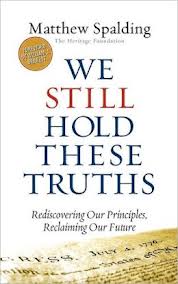In the universe, every positive force has a negative counterpart. In the case of American politics, progressivism is the antithesis to conservatism. At its root, progressivism is the fundamental rejection of American Exceptionalism and the natural rights-basis of our Constitution. For 125 years, our republic operated (for the most part) within a limited government framework where the emphasis of American governance was placed on respecting individual sovereignty as opposed to government nanny-ism. At the beginning of the 20th century, a pernicious force began to recalibrate the relationship between the government and the individual.
Progressivism, born from a populist reaction in American politics due to the Industrial Revolution, marked the beginning of the administrative state, modern welfare-ism, “progressive” education, and interventionist internationalism. While the roots of progressivism can be traced to the likes of Rousseau, Comte, John Dewey, and even Darwin and Marx, the progressives would forever change the trajectory of American political parlance and would ultimately lead to the rise of the modern conservative movement to challenge its hegemony.
In this session, you will learn the history of American progressivism, its philosophical roots in the theories of relativism, positivism, and historicism, its political leaders and reforms, and the conservative revolt, which inspired the rise of the modern conservative movement we know today. Sometimes we know who we are by who we are not.
The Presenter
Matthew Spalding is currently the Associate Vice President and Dean of Educational Programs at Hillsdale College Kirby Center located in Washington, DC. A constitutional scholar, historian and best-selling author (We Still Hold These Truths), Spalding previously oversaw The Heritage Foundation B. Kenneth Simon Center for Principles and Politics and served as the project leader for the think tank’s First Principles initiative. He is also a Senior Fellow at the Claremont Institute.
This Thinker Education course experience is co-produced by The Leadership Institute with Matthew Spalding in which he looks at the modern “progressive movement,” which is so prevalent on our college campuses. Where does their idea of “progress” come from and what are its basic tenets?
Version 1.0










